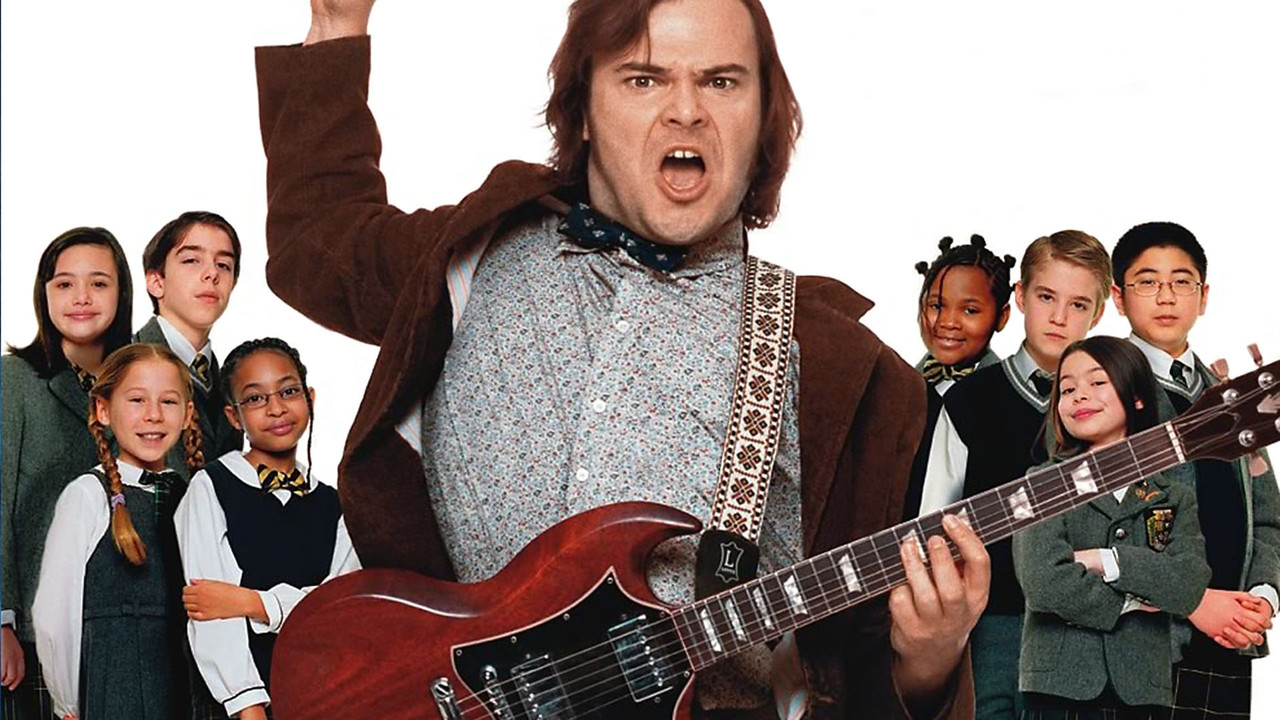Netflix Picks is a feature with a list of seven films currently available for streaming on Netflix and the reasons for why you should watch them.
School of Rock (Richard Linklater, 2003): Writer and director Richard Linklater has made a career out of phasing between content with a strong authorial stamp–the Before movies and his recent film Boyhood—and technically tight studio pictures with high entertainment value. School of Rock sits proudly in the latter category, where every line, shot, and music cue aims to entertain. Jack Black has never been a more enthralling lead, helping make it one of the most likable movies ever. The music numbers are jammin’, the comedy works, and the more you know about rock and roll, the funnier the film really is.
The Grey (Joe Carnahan, 2013): What seemed at first like another Liam Neeson B movie emerged as a surprisingly powerful meditation on death that waxes philosophy as it kicks your ass. The tension is high, the stakes intensify by the second, and the wolves, death, are coming for you. It’s a small film that leaves a big impact, and for those of you who haven’t seen it, it’s a film likely to please everyone.
Nymphomaniac part I (Lars Von Trier, 2014): Lars Von Trier’s latest is a violent and hyper erotic study of sexuality through a woman named Joe. She begins her novelistic account describing her sexuality by declaring “I discovered my cunt as a two year old.” Superbly acted and beautifully shot, Von Trier uses sensual awakening as a gateway to all kinds of human experience, and the result is a challenging and provocative work that has become the most incendiary film of the year. It’s also, oddly, unexpectedly funny and constantly entertaining, and along with the second half, will likely appear on my top 10 at year’s end.
Mad Max (George Miller, 1979): The original post-apocalyptic film, this hyper stylized sadistic action romp might not be what you’re expecting when you hear it’s the film that A.) launched Mel Gibson’s ultra-successful career, and B.) is one of the most profitable films of all time. It’s disorienting, gruesome, mean-spirited, but also unapologetically campy. It’s sensory overload turned to eleven, a film that pummels any sense of beauty or morality into the ground. Gibson dominates the screen, and even at this early stage his potential is obvious. The sequel is a better film, but the original has a purity the second film doesn’t. Given the fourth Mad Max film (this one starring Tom Hardy instead of Mel Gibson) comes out next year, there’s never been a better time to explore the franchise.
Zodiac (David Fincher, 2007): In lieu of David Fincher’s much anticipated Gone Girl (which opens the New York Film Festival in only a few weeks), turning back to what many call his best film is appropriate. This isn’t only a film just about the serial killer, but also about living in the information. Characters are drowned in facts and details, and it overwhelms them. Zodiac’s cross-genre appeal is a major reason it’s been so lauded: character study, period piece, psychological thriller, police procedural. Segments have the pulpy allure of Se7en while others carry teeth-pulling tension, but the longer the film goes, the more we are engulfed in its deceitful visage of truth. Life doesn’t have easy explanation, and neither does Zodiac.
12 Angry Men (Sidney Lumet, 1957): Commonly called one of the finest films ever made, it’s fame couldn’t be more justly earned. As I said in my top 10 films from the 1950s list, “After a trial in which the accused is almost certainly guilty, the jurors gather in a boiling hot room to reach a consensus for their verdict. They each submit a piece of paper, and they read, guilty, guilty, guilty, guilty, guilty, guilty, guilty, guilty, guilty, guilty, guilty, not guilty. The dissenting juror? None other than Henry Fonda in one of his best roles where he at once plays lawyer, philosopher, and all around good guy.” It’s one of the best paced films ever made, where, despite taking place in a single room, tension continues to mount until the dramatic conclusion. If there ever was essential viewing, this is it.
Crouching Tiger Hidden Dragon (Ang Lee, 2000): Considered the first major contemporary martial arts film to have wide appeal in the U.S., it eventually went on to win the best foreign film award at the Oscars in 2001. For once, the Academy of Motion Picture Arts and Sciences got it right. Crouching Tiger is an utterly transcendent exercise of gravity-defying acrobatics, where the mysticism of a forgotten world still holds sway. Jaw-dropping action scenes are as poetic as they are thrilling, especially a sword stand-off flying through the tree tops. Amazing.
Please follow me on Facebook, Twitter, or RSS below:




